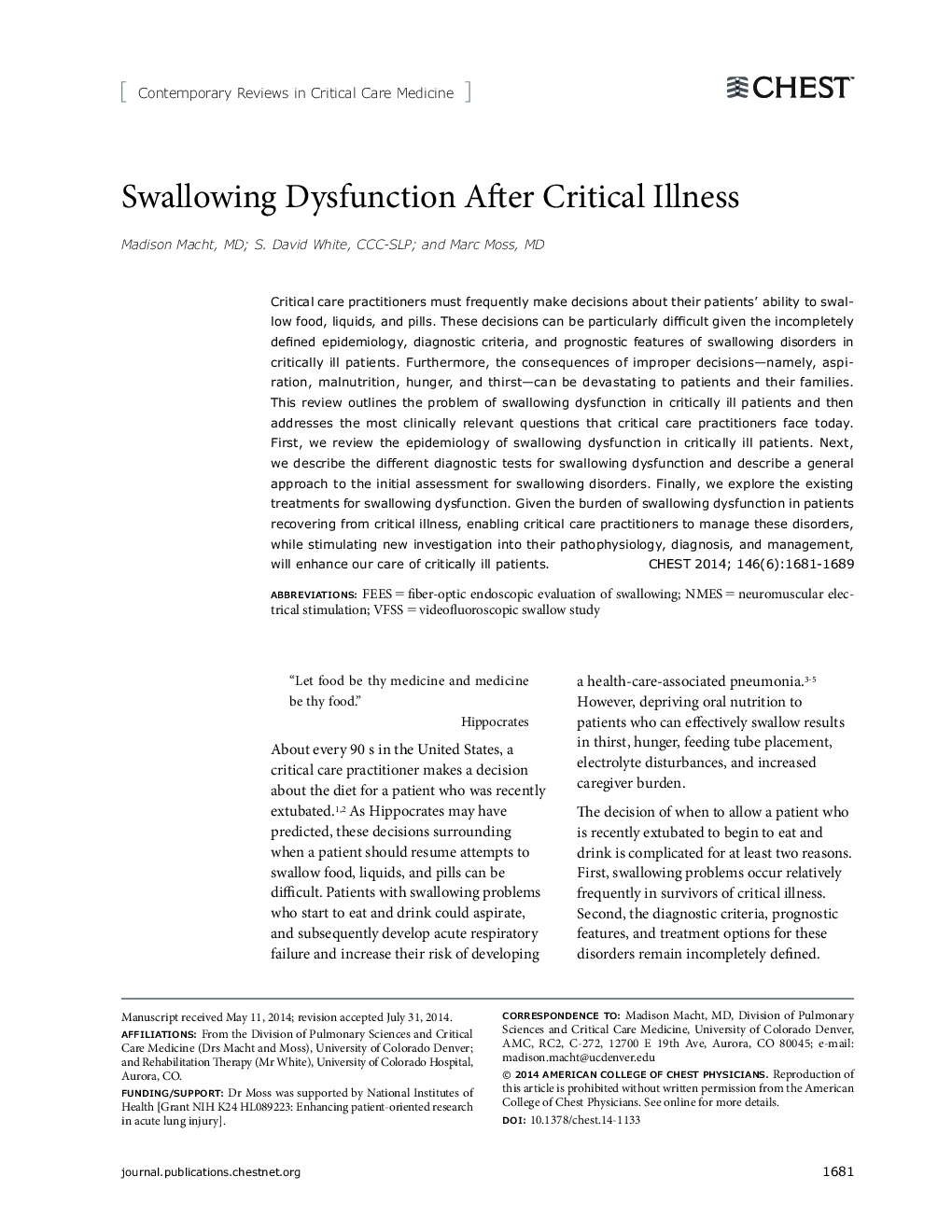| Article ID | Journal | Published Year | Pages | File Type |
|---|---|---|---|---|
| 5954170 | Chest | 2014 | 9 Pages |
Abstract
Critical care practitioners must frequently make decisions about their patients' ability to swallow food, liquids, and pills. These decisions can be particularly difficult given the incompletely defined epidemiology, diagnostic criteria, and prognostic features of swallowing disorders in critically ill patients. Furthermore, the consequences of improper decisions-namely, aspiration, malnutrition, hunger, and thirst-can be devastating to patients and their families. This review outlines the problem of swallowing dysfunction in critically ill patients and then addresses the most clinically relevant questions that critical care practitioners face today. First, we review the epidemiology of swallowing dysfunction in critically ill patients. Next, we describe the different diagnostic tests for swallowing dysfunction and describe a general approach to the initial assessment for swallowing disorders. Finally, we explore the existing treatments for swallowing dysfunction. Given the burden of swallowing dysfunction in patients recovering from critical illness, enabling critical care practitioners to manage these disorders, while stimulating new investigation into their pathophysiology, diagnosis, and management, will enhance our care of critically ill patients.
Related Topics
Health Sciences
Medicine and Dentistry
Cardiology and Cardiovascular Medicine
Authors
Madison MD, S. David CCC-SLP, Marc MD,
